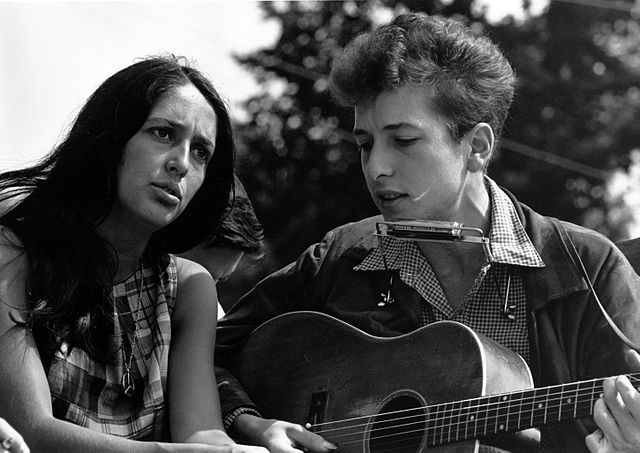I’m in Middle America, driving along listening to a classic rock station, enjoying the tunes.
I’m hardly surprised when The Beatle’s Let it Be comes on. It’s a classic. It’s beautiful.
I’m alone in the car and can sing along without hurting anyone’s musical sensibilities.
Just lovely.
Anywhere else in the playlist, the next song would be no more surprising, although it has never been beautiful. Twisted Sister: We’re Not Gonna Take It. Following Let It Be with We’re Not Gonna Take It is rather perverse (click here and here for the lyrics). Their messages are completely opposed.
A song of beauty, peace and contentment. A song of rage, outrage and rebellion. A song that says it’ll be alright, we’ll work it out, we’ll overcome our differences. A song that says we reject your values, your rules, your goals, and we don’t want anything to do with them, or with you.
I would never put these two songs together. I wouldn’t even put them in the same playlist. I might play Let It Be when I’m in a peaceful mood, or when I want to generate a peaceful mood. I can imagine playing We’re not Gonna Take It when I’m angry at politicians, or bureaucrats, or the injustices of the capitalist economic system. (1)
I reckon their juxtaposition says a lot about our current situation, about the tensions in our society and culture.
At a very surface level, it reproduces the messages of mass-marketing. It tells us that all is well, or it will be alright. It tells us that we can relax and enjoy, settle and rest, because it’s all good, or at least, it will be.
And it tells us that we are dissatisfied, incomplete, unsettled. It’s not good, and it’s someone’s fault; and we can only make it good if we rise up in protest, stake a claim to doing things differently, upsetting the apple-cart, disputing the status quo.
At a deeper level, it speaks to one of the central philosophical tensions in everyday life: how can I practice non-attachment and be an engaged social actor? How do I pursue peace-of-mind and social justice?
How do I make peace with a f*cked up world and contribute to making the world a less f*cked-up place?
I’ve written about this tension before, here and here. The only thing I can add now is that this is a perpetual tension: not one that can be satisfactorily resolved by choosing one or the other. Choosing to ignore the injustices, pain and suffering of the world, escaping into an “it’s all good” sort of fluffy-headed bliss is a cop-out; an ostrich-like head-in-the-sand pretence that is never satisfying. But standing up and fighting and fighting and fighting unrelentingly—re-acting to every injustice, every offense, every outrage—merely traps us in an angry struggle.
This is what Nietzsche cautioned against when he pointed out how easily fighting monsters can turn you into one (which I mentioned here).
Somehow we must find a way to juggle the two, not taking it and letting it be, fighting the monsters and dwelling in the peace and beauty that life has to offer.
There will be an answer, no doubt. But it won’t be simple, easy, or once-and-for-all.
It requires holding the tension between making conscious efforts to make the world a better place and practicing compassion and empathy—for both the victims and the perpetrators of injustices. It requires recognition that injustices and oppression must be addressed, even when addressing them feels violent. It requires the strength to refrain from the violence that does harm or sheds blood, and the compassion to recognize the kinds of violence experienced by those of us who are “weak” (-ened through our socialisation / internalisation of ideologies that justify inequality and oppression, for example) as they struggle to overcome internalised obstacles and begin moving into freedom.
It requires the strength and commitment to state your truth and to work for what’s right without violating others or creating yet more injustice or oppression.
Such is life. Good luck.
(1) I emailed the station and asked if there’s a DJ at work here, or if it was the work of a random playlist generator—and if it was a DJ, what was s/he trying to tell us? They were good enough to get back to me straight away, and honest enough to tell me it was a computer generated play list.
Author: Karl Smith
Editor: Renée Picard
Image: Wiki Commons

 Share on bsky
Share on bsky





Read 3 comments and reply